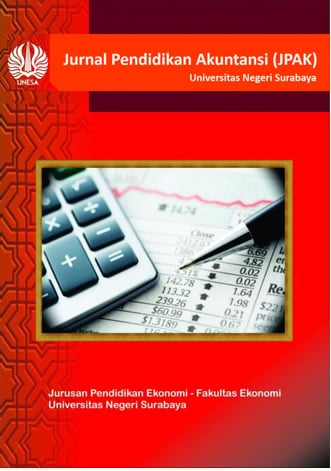Triple Entry Bookkeeping di Era Teknologi Blockchain: Suatu Kajian Literatur
DOI:
https://doi.org/10.26740/jpak.v10n3.p338-346Keywords:
Blockchain, Triple Entry Bookkeeping, Double Entry BookkeepingAbstract
The financial industry in the era of technological development began to be supported by Blockchain technology. Blockchain is a new idea in the financial industry as a solution to solve the problem of digital money (cryptocurrency). Transactions recorded in the blockchain will be permanently stored so that they cannot be manipulated and provide a higher level of security. Blockchain technology supports the development of triple entry bookkeeping which is a configuration of the development of the double entry bookkeeping system. This research uses qualitative proximity to the library research method. The data collected comes from indexed journals on Google Scholar, Science and Technology (Sinta), Directory of Open Access Journals (DOAJ), books and other literature which will then be analyzed and set forth in the form of written words.The results of this study show that Triple Entry Bookkeeping in the Blockchain era has many advantages as a form of development of Double Entry Bookkeeping, namely providing information about budgets, automatic transaction validation, automatic public ledger, increasing openness & trust, and solving fraud. In Indonesia itself, blockchain implementation in the field of accounting has been widely carried out, such as on the Online Pajak platform, Bank BCA, PT Pos Indonesia, and other commercial companies listed on the Indonesian Blockchain Association (ABI). The implementation of the triple entry bookkeeping system is still not ready to be implemented by medium-sized entities and MSMEs due to the high costs required, the lack of understanding of professional accountants regarding technology and entities that feel they still do not need a triple entry bookkeeping system. Therefore, support from all parties is needed so that this research can develop and not only become a concept but can be implemented in the financial industry.
Downloads
Downloads
Published
How to Cite
Issue
Section
License
Authors who publish with this journal agree to the following terms:
- Authors retain copyright and grant the journal right of first publication with the work simultaneously licensed under a Creative Commons Attribution License that allows others to share the work with an acknowledgement of the work's authorship and initial publication in this journal.
- Authors are able to enter into separate, additional contractual arrangements for the non-exclusive distribution of the journal's published version of the work (e.g., post it to an institutional repository or publish it in a book), with an acknowledgement of its initial publication in this journal.
- Authors are permitted and encouraged to post their work online (e.g., in institutional repositories or on their website) prior to and during the submission process, as it can lead to productive exchanges, as well as earlier and greater citation of published work (See The Effect of Open Access).

Jurnal Pendidikan Akuntansi (JPAK) is licensed under a Creative Commons Attribution-NonCommercial 4.0 International License.
 Abstract views: 696
,
Abstract views: 696
, PDF Downloads: 1025
PDF Downloads: 1025



